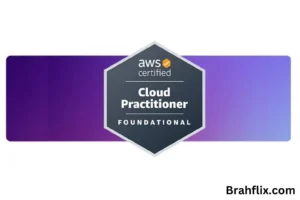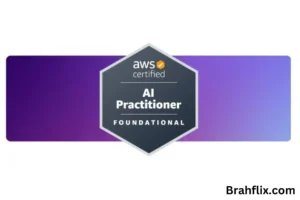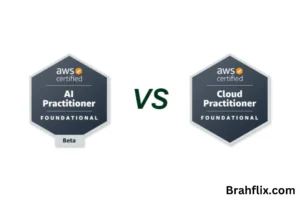Introduction
In today’s tech-driven world, professionals are increasingly required to specialize in various fields, including cloud computing and artificial intelligence (AI). As businesses pivot to digital solutions, understanding the roles of different practitioners becomes crucial. This article will answer the question, “what is the difference between cloud practitioner and AI practitioner?” We will explore their responsibilities, required skills, industry applications, and much more.
Key Takeaways
- Cloud practitioners focus on cloud computing solutions and architecture.
- AI practitioners specialize in machine learning, neural networks, and AI algorithms.
- Both roles are essential for modern organizations but serve different purposes.
- Understanding these distinctions can guide your career choices in tech.
1. Understanding the Roles
Cloud Practitioner
A cloud practitioner is primarily responsible for the implementation and management of cloud solutions. This role often involves understanding various cloud service models, such as Infrastructure as a Service (IaaS) and Software as a Service (SaaS). Cloud practitioners are adept at using cloud platforms like AWS, Google Cloud, and Microsoft Azure. They ensure that cloud resources are effectively utilized to enhance business operations.
Key Responsibilities:
- Designing cloud architectures.
- Managing cloud resources.
- Monitoring performance and security.
- Optimizing cloud spending.
AI Practitioner
On the other hand, an AI practitioner specializes in developing and deploying AI technologies. This role includes working with machine learning algorithms, neural networks, and data analytics. AI practitioners leverage data to create predictive models that help businesses make informed decisions.
Key Responsibilities:
- Developing machine learning models.
- Analyzing and preprocessing data.
- Implementing AI solutions in business processes.
- Staying updated with AI trends and technologies.
2. Skills and Competencies
Skills Required for Cloud Practitioners
- Cloud Architecture: Understanding of designing cloud systems.
- Networking Knowledge: Familiarity with network setups and configurations.
- Security Proficiency: Knowledge of cloud security protocols.
- Cost Management: Skills in managing cloud expenditure.
Skills Required for AI Practitioners
- Programming Languages: Proficiency in Python, R, or Java.
- Machine Learning: Understanding various ML algorithms.
- Data Handling: Skills in data wrangling and manipulation.
- Mathematics and Statistics: Strong foundational knowledge is crucial.
Comparison Table: Skills
| Skills | Cloud Practitioner | AI Practitioner |
|---|---|---|
| Cloud Architecture | Yes | No |
| Networking Knowledge | Yes | No |
| Programming Languages | No | Yes (Python, R, Java) |
| Data Handling | No | Yes |
| Security Proficiency | Yes | No |
| Mathematics and Statistics | No | Yes |
3. Educational Background
Cloud Practitioner Education
Most cloud practitioners hold degrees in computer science, information technology, or related fields. Many also pursue certifications, such as AWS Certified Cloud Practitioner or Microsoft Azure Fundamentals, to enhance their credibility.
AI Practitioner Education
AI practitioners often come from backgrounds in computer science, data science, or engineering. Advanced degrees (Master’s or PhD) in AI or machine learning are common. Certifications in AI frameworks like TensorFlow or PyTorch are also advantageous.
4. Career Opportunities
Cloud Practitioner Careers
The demand for cloud practitioners is skyrocketing, with roles like cloud architect, cloud consultant, and cloud engineer being highly sought after. According to a report by Gartner, the cloud services market is expected to grow by 22% in 2024, emphasizing the need for skilled cloud professionals.
AI Practitioner Careers
AI practitioners are also in high demand, with roles such as data scientist, machine learning engineer, and AI researcher. According to LinkedIn, AI specialist roles have seen a 74% annual growth rate, making it one of the fastest-growing career fields.
5. Industry Applications
Cloud Practitioner in Business
Cloud practitioners play a vital role in various industries, including finance, healthcare, and retail. They help organizations migrate to cloud solutions, which can improve scalability and reduce costs. Companies like Netflix and Dropbox have built their infrastructures on cloud platforms, enabling them to deliver seamless services.
AI Practitioner in Business
AI practitioners are increasingly integrated into sectors like marketing, finance, and healthcare. They use AI to analyze consumer behavior, automate processes, and enhance decision-making. For example, companies like Amazon use AI for personalized recommendations, significantly improving customer experience.
6. Tools and Technologies
Tools for Cloud Practitioners
- AWS: Comprehensive cloud services platform.
- Google Cloud Platform: Offers data storage and processing capabilities.
- Microsoft Azure: Integrates various Microsoft services into cloud solutions.
Tools for AI Practitioners
- TensorFlow: Open-source library for machine learning.
- Keras: High-level neural networks API.
- Pandas: Data manipulation and analysis library.
7. Certifications and Training
Certifications for Cloud Practitioners
Certifications validate the skills of cloud practitioners. Popular options include:
- AWS Certified Solutions Architect
- Google Cloud Professional Cloud Architect
- Microsoft Certified: Azure Solutions Architect Expert

Certifications for AI Practitioners
AI practitioners can enhance their qualifications through:
- Certified AI Practitioner (CAIP)
- TensorFlow Developer Certificate
- IBM AI Engineering Professional Certificate
8. Salary Expectations
Cloud Practitioner Salaries
According to PayScale, the average salary for a cloud practitioner in the United States is around $110,000 annually. Roles like cloud architect can command salaries upwards of $150,000, depending on experience and location.
AI Practitioner Salaries
AI practitioners typically earn higher salaries due to the specialized nature of their work. Data scientists and machine learning engineers often earn an average of $120,000 to $140,000 per year, with senior positions exceeding $200,000.
9. Challenges Faced
Challenges for Cloud Practitioners
- Security Risks: Ensuring data is secure in the cloud.
- Cost Management: Optimizing cloud usage to avoid overspending.
- Integration Issues: Seamlessly integrating cloud solutions with existing systems.
Challenges for AI Practitioners
- Data Quality: Ensuring data used in AI models is clean and relevant.
- Ethical Considerations: Navigating the ethical implications of AI.
- Rapidly Evolving Technologies: Keeping up with the fast-paced advancements in AI.
FAQs
1. What is the primary focus of a cloud practitioner?
A cloud practitioner primarily focuses on managing and implementing cloud services and architecture to optimize business operations.
2. Do AI practitioners require a strong background in mathematics?
Yes, a solid understanding of mathematics and statistics is essential for AI practitioners to develop algorithms and models effectively.
3. What industries employ cloud and AI practitioners?
Both roles are employed across various sectors, including finance, healthcare, retail, and technology.
4. Can cloud and AI practitioners collaborate in their roles?
Absolutely! Collaboration between cloud and AI practitioners can lead to more efficient data handling and improved service delivery.
5. Is certification necessary for cloud and AI practitioners?
While not mandatory, certifications can enhance credibility and job prospects in both fields.
Conclusion
In summary, understanding what is the difference between cloud practitioner and AI practitioner is essential for anyone looking to enter the tech industry. While both roles are vital for modern businesses, they focus on different aspects of technology: cloud practitioners manage cloud services, whereas AI practitioners develop intelligent solutions.
Are you considering a career in tech? What area interests you the most, cloud computing or artificial intelligence? Check out our other blogs for more insights into various tech careers and trends!